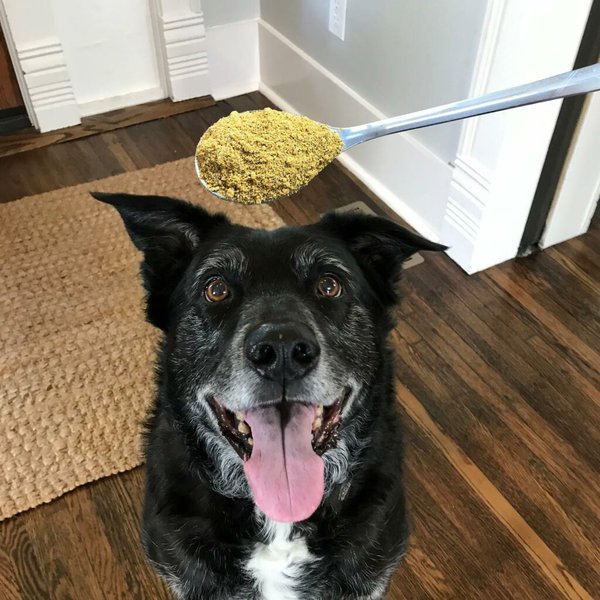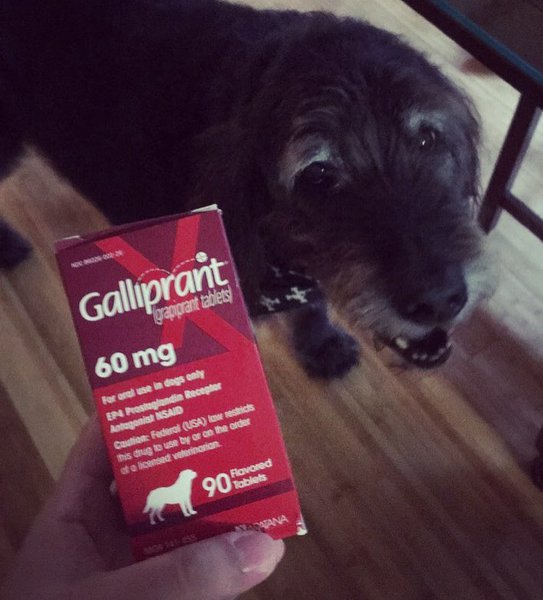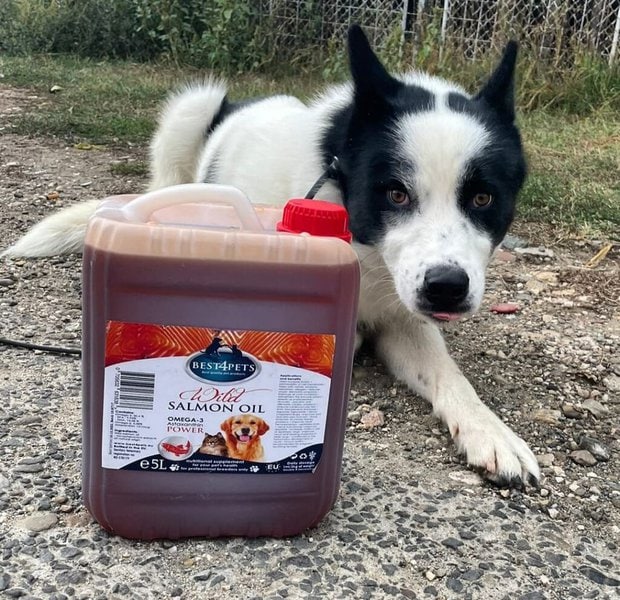Is your pooch not himself lately? If you observe some pain symptoms in your pet, these could be due to various reasons – an infection, disease, injury, or perhaps a part of the aging process. This leads you to a very important question – what painkillers are safe for dogs?
Deracoxib is one of the few painkillers prescribed by veterinarians to dogs. Sometimes, aspirin may be recommended to your pooch for relieving pain, while glucosamine is usually for pain linked with hip and joint issues.
From natural or herbal to pharmaceutical painkillers for dogs, here are some of the most common ones that veterinarians may prescribe. Be sure to consult your pup’s vet before buying any of these to ensure it’s completely suitable for your ailing pet.
27. Tylenol

Tylenol is generally safe for dogs only when recommended by your veterinarian and given in the right amounts. For instance, canines may be prescribed a low dose of 5 up to 7 milligrams per pound of total body weight.
On the other hand, higher doses of Tylenol can be toxic to your pup. It should also not be given to dogs that have a history of allergy or hypersensitivity to this medication.
26. Ibuprofen

Generally, ibuprofen is not commonly prescribed to dogs unless it is absolutely necessary. There is also a very small window when it comes to a safe dosage of ibuprofen that you can give to your pup. But you should never administer it to your pooch unless your vet prescribes it.
When and if given to a dog in high doses, this can lead to gastrointestinal ulcerations and irritations, as well as gastric perforations. Ibuprofen overdose can also result in brain damage and coma, so it is best to first consult your veterinarian before giving your dog this medication for pain.
25. Boswellia Serrata

The Boswellia serrata extract is sourced from the Boswellia trees and is commercially labeled as Indian frankincense. This extract is commonly used in candles and lotions. It can also come in capsule form, especially for canine pain management.
What Boswellia serrata does is help reduce tenderness, swelling, and soreness throughout the body. It is all-natural, yet it is important that you carefully follow the directions given by your vet when providing this painkiller to your pooch.
24. Ginger

Often used as a spice in dishes, ginger is a natural herb that helps to relieve upset stomachs both in canines and humans. It can also support pain relief due to osteoarthritis as it is packed with antioxidants that reduce inflammation.
When giving ginger to your dog, it is best to grate a small piece of fresh ginger and sprinkle it over your pup’s food. Use a minimal amount to help your pet’s body acclimate to this natural spice.
23. Devil’s Claw

Common in South Africa, this plant is known for its pain-relieving properties. However, there is not a lot of evidence that proclaims its efficacy in treating pain among dogs.
Overall, Devil’s Claw is a natural painkiller, and it is generally safe for canines. However, it is best to seek professional advice from your veterinarian to learn more about the right dosage ideal for your pet.
22. CBD Oil

Sourced and extracted from hemp, CBD oil, or cannabidiol oil, comes from the Cannabis plant producing marijuana. The only difference is that there is no THC in CBD oil, and THC, or Tetrahydrocannabinol, is what gives the plant its psychoactive properties.
CBD products explicitly formulated for canines are safe and natural. There have also been studies on the efficacy of CBD oil in canines that suffer from osteoarthritis. It helps to reduce pain without adverse side effects.
21. Turmeric

Next up on our list of painkillers that are safe for dogs is turmeric. It contains a potent ingredient, curcumin, which gives this plant its anti-inflammatory effects. In fact, scientific studies have shown that turmeric is more powerful in relieving pain than acetaminophen or ibuprofen.
When giving turmeric to dogs, it is best to use the powdered form. Combine it with fish oil or olive oil and a dash of black pepper. For small dogs, ¼ teaspoon of this mixture should suffice, while for larger dogs, a teaspoon would do.
20. Grapiprant

This painkiller for dogs comes in different names, but it is most commonly known as Grapiprant. It comes in tablet form, and this NSAID offers a unique action in relieving pain.
For instance, it has a PGE2 antagonist in its formulation, and this is what acts as a pain-killing component. However, be sure to give only the prescribed amount since a higher dose can lead to some gastrointestinal pain.
19. Mavacoxib

This painkiller is a COX-2 inhibitor used for controlling inflammation and pain caused by degenerative joint ailments in canines. It is commonly prescribed to dogs that suffer from osteoarthritis to help them manage the pain.
As for the dosing, it depends on what your veterinarian prescribes to your pet’s needs. This is why it is best to consult your vet first and adhere to the recommended dosage to prevent serious side effects.
18. Etodolac

Etodolac is approved in the United States for controlling pain among dogs. This is a COX-2 inhibitor that aims to inhibit pain while at the same time treating lameness linked with canine hip dysplasia.
While there are low risks of serious side effects when given at the prescribed dosage, it can lead to serious problems when administered at thrice the amount of the labeled dosage, including weight loss, vomiting, and gastrointestinal ulceration.
17. Ketoprofen

Available in the United States, as well as in Canada and the European Union, Ketoprofen comes in tablet form and is used for treating acute pain among felines and canines. For dogs, the prescribed dosage is 1 milligram per kilogram weight and may be administered for a maximum of 5 days.
It helps to manage pain following soft tissue and orthopedic surgery in pups. Be sure to provide only the recommended dosage, as an overdose can lead to gastrointestinal upset and renal disease.
16. Phenylbutazone

This painkiller is among the earliest approved NSAIDs for use in dogs. It is available in different formulations such as gel, paste, tablet, as well as parenteral forms.
Phenylbutazone is safe to use when given in the prescribed dosage. However, it is recommended to consult your vet to determine the right dosage your dog needs to be based on his specific condition.
15. Paracetamol

Also known as acetaminophen, paracetamol is a painkiller with antipyretic and analgesic effects, like aspirin. In dogs, it is typically combined with codeine to help manage pain.
The dosage to be given to your dog depends on your pet’s weight and the severity of his condition. In some cases, dosage adjustments may be required to achieve the best results without adverse effects.
14. Omega-3 Supplements

Pain in the joints is most commonly linked with a deficiency in omega-3 fatty acids. This is why in addition to managing pain, providing your pet with omega-3 supplements helps in preventing further occurrence of inflammation.
There are many dog-friendly omega-3 supplements available on the market. You may consult your vet to learn more about the best one for your pooch, especially for reducing chronic inflammation and pain linked with arthritis.
13. Butorphanol

Butorphanol is one of the few opioids that are approved for use in canines. In particular, it is intended to control and manage pain. When used in the prescribed dosage, it should be safe and without adverse effects.
This painkiller works to reduce mild or moderate pain in canines. Typically, your dog should feel better an hour or two after the first dose has been administered.
12. Tramadol

As a medication vets commonly prescribe for pain management in canines, Tramadol is a potent drug for moderate to severe pain. It is best to use it under the professional guidance of a vet to ensure the right dosage is administered.
In some instances, there are pups that get sleepy after taking Tramadol. This is more common when given in a higher dose, although some canines react differently.
11. Benadryl

For dogs that suffer from pain due to an allergic reaction, Benadryl is commonly prescribed for inflammation symptoms. This antihistamine is also effective in reducing the effects of allergies.
The most common dosage administered to dogs is half or one full milligram of Benadryl per body weight in pounds. Check with your vet before giving this medicine to your dog to ensure the right dosage.
10. Robenacoxib

Available by other names, such as Onsior, this medicine is approved for use on dogs to control inflammation and pain following a surgical procedure. It is commonly given orally in tablet form or injected under the skin.
However, it is not ideal for long-term use in canines suffering from osteoarthritis. The maximum length of time it can be safely administered to your dog is three days, and only for reducing inflammation post-surgery.
9. Meloxicam

Meloxicam is marketed under numerous names, such as OroCAM, Loxicom, and Rheumocam. This is an NSAID intended to relieve inflammation and pain in dogs. It also helps with mild to moderate fever.
Aside from these specifications, veterinarians may prescribe Meloxicam to help address pain following the surgery. It can also aid in treating osteoarthritis in canines.
8. Gabapentin

Dogs that suffer from moderate to severe pain, as well as those who have seizure episodes, may be prescribed to take Gabapentin. This helps to reduce nerve pain and to manage seizures by sedating the nerves.
It comes in capsule form and in different doses, such as 100 to 400 milligrams. When treating canine seizures, the ideal milligram per pound is 4.5 up to 13.5 and administered every 8 up to 12 hours.
7. Firocoxib

Also marketed under the name Previcox, Firocoxib is an NSAID approved in the European Union and the United States for controlling inflammation and pain. It helps with postoperative pain and osteoarthritis.
It comes in a chewable tablet form and is administered orally to help with pain after orthopedic surgery. As for the duration of treatment, it can be given for up to 14 days and must only be administered under a vet’s close supervision.
6. Carprofen

As another NSAID that helps relieve pain in dogs, Carprofen is intended to reduce joint pain and inflammation. There are also some dogs who suffer from mobility issues due to osteoarthritis that experience relief from taking this medication.
Carprofen comes in tablet and capsule forms, and this medicine should only be administered as directed by your vet. Chewable tablets make it easy for canines to take this medicine for pain relief.
5. Amantadine

An antiviral medicine that is sometimes taken with NSAIDs, Amantadine is used for pain relief and discomfort. It may also be prescribed to alleviate swelling and soreness in a canine’s body.
Not all painkillers are suitable for dogs, yet Amantadine is one of the canine-safe medications to help with inflammation and discomfort. It can also be administered twice a day for chronic and severe pain, although a vet’s supervision is still very important.
4. Opioids

When it comes to relieving intense pain, opioids may be prescribed to canines. In fact, these medications are used to bring back a decent quality of life for pups that deal with serious, chronic pains.
As for the side effects, there are a few to keep in mind. Among the common ones include mood changes and sluggishness or sedation. Certain dosage adjustments may be done depending on how your pet reacts after taking this pain medication.
3. Glucosamine

Glucosamine is a typical canine joint supplement that can also be purchased without a veterinarian’s prescription. Although it does not quite eliminate pain, it does help reduce symptoms of further joint damage by enhancing cartilage repair.
Another thing that glucosamine does is it minimizes discomfort while improving mobility. When taken with MSM, it helps to reduce inflammation as the supplement repairs damaged cartilage.
2. Aspirin

It is worth noting that aspirin is not intended for long-term use, and it should only be used under the supervision of a vet. In most cases, it is given for a serious injury when other medications are not available.
Aspirin, which comes in the coated form, is better to use for dogs since it helps reduce the likelihood of gastrointestinal bleeding. It is also given with food, but it is best to consult your vet to learn more about the proper dosage and frequency of administering this medication.
1. Deracoxib

And lastly, we have Deracoxib, which is also marketed under the names, Doxidyl or Deramaxx. It is an NSAID that must only be administered as prescribed by your vet.
Deraxocib may be used after soft tissue surgery. It helps to control pain and for treating osteoarthritis. It can also be administered to reduce inflammation after dental surgeries and other painful injuries in dogs.
Related Questions
How Can I Ease My Dog’s Pain At Home? Natural painkillers, such as turmeric and CBD oil, are easy to use in easing your pet’s pain. Depending on what the label indicates, it is best to follow the prescribed dosage to avoid side effects.
Is Baby Aspirin Safe For Dogs? Sometimes vets may recommend baby aspirin in emergency cases. However, aspirin specifically made for canines is always a much better option. Since dogs are unable to digest the coating in human aspirin, the medicine’s potency is limited and may not give the desired effects.
What Is The Best Anti-Inflammatory For Dogs? The best anti-inflammatory for dogs is Deraxocib and Carprofen. However, you can also give natural painkillers that may be purchased over the counter, including turmeric, ginger, glucosamine, and omega-3 supplements.





